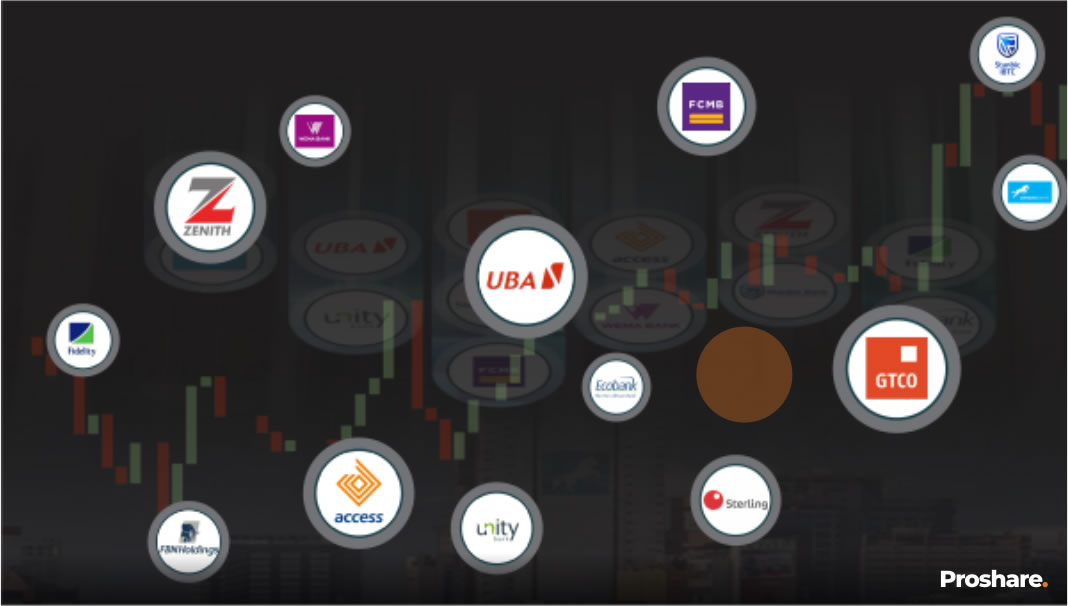After a fall in assets under management in 2021, Mutual Funds are growing again. Both the rally in equities and the recent decision by the Central Bank of Nigeria to raise interest rates support their growth
Growth Returns to Nigerian Mutual Funds II
Mutual Funds declined in 2021 for the first time in five years. This was because bank deposit rates were higher, particularly in the first half of 2021, than Treasury Bill (T-bill) rates. This made it difficult for Money Market funds (which hold a lot of T-bills) to compete. Things have improved this year. T-bill rates are improving and the competition from banks has abated
According to the Securities and Exchange Commission (SEC), between 31 December 2021 and 27 May 2022, the total Net Asset Value of all regulated mutual funds grew by 8.66% from N1.41tn (US$3.38bn) to N1.53trn (US$3.64bn). This gain was primarily driven by the growth in Money Market funds (+11.78%) from N547.91bn to N612.43bn and Fixed Income and Bond funds (+12.21%) from N377.74bn to N423.88bn.
An important side-effect of low interest rates has been the meteoric rise of the equity market this year. The NGX All-Share Index is up 23.86% year-to-date. This boosted the NAV of Equity funds, gaining 9.84% from N15.76bn to N17.31bn. Going forward, we may even see a revival in Equity Funds, which shrank drastically between 2012 and 2020 as the market declined. Significant performance of the equity market in 2020 (+50.0%), a positive return in 2021 (+6.1%) and the positive performance (23.86%) year-to-date suggest that investors may warm to these again.
Alternatively, investors may take positions in Balanced Funds (also known as Mixed Funds) which hold a combination of fixed income securities and equities. Mixed Funds are up 8.89% from N29.27bn to N31.88bn year-to-date.
Nearly two weeks ago, the CBN raised its Monetary Policy Rate from 11.50% to 13.00%. Although this did not immediately cause a large rise in market rates (i.e T-bill rates and FGN bonds rates), it strengthened expectations that market interest could rise later this year. If market interest rates do rise then we expect to see investors move into Money Market funds and Fixed Income funds.
Savers are learning that, in the long run, Money Market funds and Fixed Income funds offer superior returns to bank deposits. Some Money Market funds, recognising that from time to time they compete with bank deposits, allow rapid deposits and withdrawals, in order to mimic, or even improve upon, the terms of deposit accounts. Our view is these trends will continue, with both Money Market and Fixed Income funds set to offer better returns than what is available from banks.
We believe that the growth of the Mutual Fund industry has resumed. Mutual Funds tend to attract assets once savers have been accustomed to Pension Funds, and Nigerian Pension Funds are the outstanding financial success story of the past decade, having grown to some N13.4 trillion in assets. Mutual Fund are next, we believe.
FX
Last week, the exchange rate at the Investors and Exporters Window (I&E Window) weakened by 0.06% to N419.75/US$1. Elsewhere, the foreign exchange (FX) reserves of the Central Bank of Nigeria (CBN) declined by 0.17% to US$38.48bn, the lowest level since 11 October 2021, reflecting its continued intervention across the various FX windows. In the historical context, the moves in the exchange rate and in the FX reserves are small, in our view, and point to continued stability in the I&E Window rate for several months to come.
Bonds & T-bills
Last week, trading in the Federal Government of Nigeria (FGN) bond secondary market was bullish as the average benchmark yield for bonds fell by 6bps to close at 11.16%. The yield on the 10-year (-4bps to 11.72%) bond fell, while the yield on the 3-year bond rose by 10bps to 10.20%; the yield on the 7-year bond was flat at 11.02%. Our view remains that the combination of thin system liquidity and elevated Federal Government domestic borrowing is likely to lead to a rise in bond yields over the coming months.
Activity in the Treasury Bill (T-Bill) secondary market was bearish as the average yield rose by 13bps to 3.97%. Notably, the yield on the 342-day T-bill expanded by 13bps to close at 5.07%. This week, the Debt Management Office (DMO) is expected to roll over N167.22bn (US$39.84m) worth of instruments. Elsewhere, the average yield for OMO bills was flat at 4.36% and the yield on the 333-day OMO bill also closed flat at 4.48%. At the OMO auction, the Central Bank of Nigeria allotted N40.00bn worth of bills to the market and maintained stop rates.
Oil
Last week, the price of Brent crude rose to an almost three-month high of US$122.84/bbl before settling at US$119.72/bbl. The rise marked a 0.24% w/w gain, its third consecutive weekly jump. Consequently, Brent is up 53.92% year-to-date and has traded at an average of US$102.82/bbl, 45.05% higherthan the average of US$70.89/bbl in 2021.
It was quite an eventful week for oil prices. China finally exited its three-month lockdown, bolstering oil demand. Data from the US Energy Information Administration (EIA) showed crude stockpiles had declined by 5.07 million barrels, much higher than consensus expectations of a 1.35-million-barrel drop. This offset news of the decision by the Organization of the Petroleum Exporting Countries and its allies (OPEC+) to increase output by 648,000 bpd in July and August, from a previously-agreed 432,000 bpd. The output increases are shared across all member countries, including Russia and other members which are already failing to meet their targets, implying that actual output is likely to be less than planned.
Elsewhere, the European Union finalised its ban on financing services for Russian oil cargoes, which is expected to come into effect after a six-month wind-down period, banning EU entities from providing insurance to Russian trade. Our view remains that Brent is likely to stay comfortably above the US$60.00/bbl mark for several more months which is a level historically associated with strong public finances in Nigeria
Equities
Last week, the NGX All-Share Index slumped by 2.18%, the most since the week ended 25 June 2021, to 52,908.24 points, eroding all the gains from the prior week. Consequently, its year-to-date return fell to 23.86%. Okomu Oil Palm (-10.00%), Presco (-10.00%) and International Breweries (-8.23%) closed negative, while PZ Cussons Nigeria (+10.04%), Ecobank Transnational Incorporated (+4.60%) and Oando (+4.06%) closed positive. Performances across the NGX sub-indices were broadly negative, with NGX Industrial Goods (-3.73%) topping the laggards list, followed by the NGX 30 (-3.10%), NGX Consumer Goods (-2.51%), NGX Pension (-1.84%), NGX Banking (-0.73%) and NGX Oil & Gas (-0.45%) indices. Conversely, the NGX Insurance (+0.83%) index closed in the green
Model Equity Portfolio
Last week the Model Equity Portfolio fell by 2.22% compared with a fall in the NGX Exchange All-Share Index (NGX-ASI) of 2.18%, underperforming it by 5 basis points (rounded basis points). So far this year it has gained 25.25% against a 23.86% gain in the NGX-ASI, outperforming it by 139bps.
The market provided almost no support for equity prices last week, and one had to look far to find a positive performance (in our Model Equity Portfolio, Guinness Nigeria and BUA Foods were the only exceptions among the negative moves). Since the 150-point rise in the Money Policy Rate (MPR) to 13.00% the week before (Tuesday 24 May) the market has been in a cautious mood and profit-taking has been the order of the day, although there have been some rallies, notably in PZ Cussons (in which we do not have a notional position).
That said, the rise in market interest rates since 24 May has not been strong, and does not yet look decisive. This weakens the theory that investors will switch rapidly from equities to fixed income instruments in the short term. Rather than steep declines in the market, which we saw last week, we may see the market equivocate for a while.
As advised on these pages a week ago, we made notional sales in our core overweight positions among the largest stocks by index weight, and from recently-acquired mid-cap stocks such as Nigerian Breweries, with the aim ofraising the overall notional cash position by 500bps, which we did. Also, as advised last week, we continued to built up a to neutral weight in BUA Foods.
In our view, it still makes sense to continue with this policy. Thus, we intend to make notional sales in our core overweights (MTN Nigeria, Dangote Cement, Seplat, Okomu and Presco) and some our recently-acquired mid-cap stocks (notably Guinness Nigeria and Nigerian Breweries) as well as Zenith Bank where we have a notional overweight. Again we intend to raise up to 500bps of additional notional cash this week.
 Lagos, NG • GMT +1
Lagos, NG • GMT +1











 396 views
396 views























 Sponsored Ad
Sponsored Ad
 Advertise with Us
Advertise with Us









